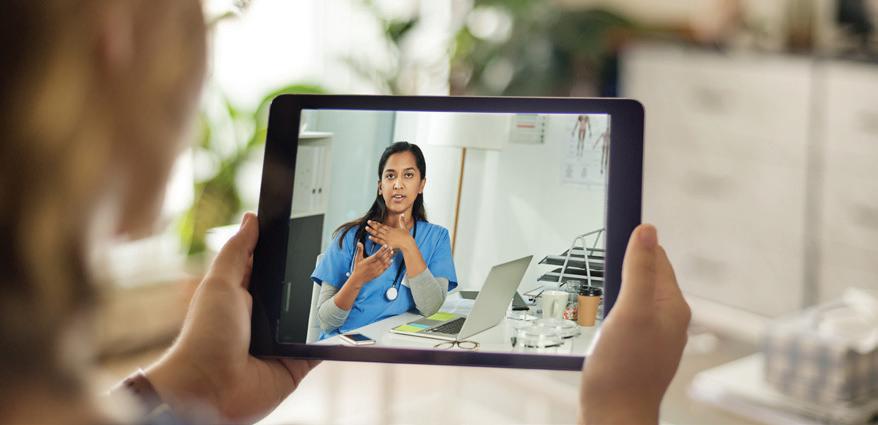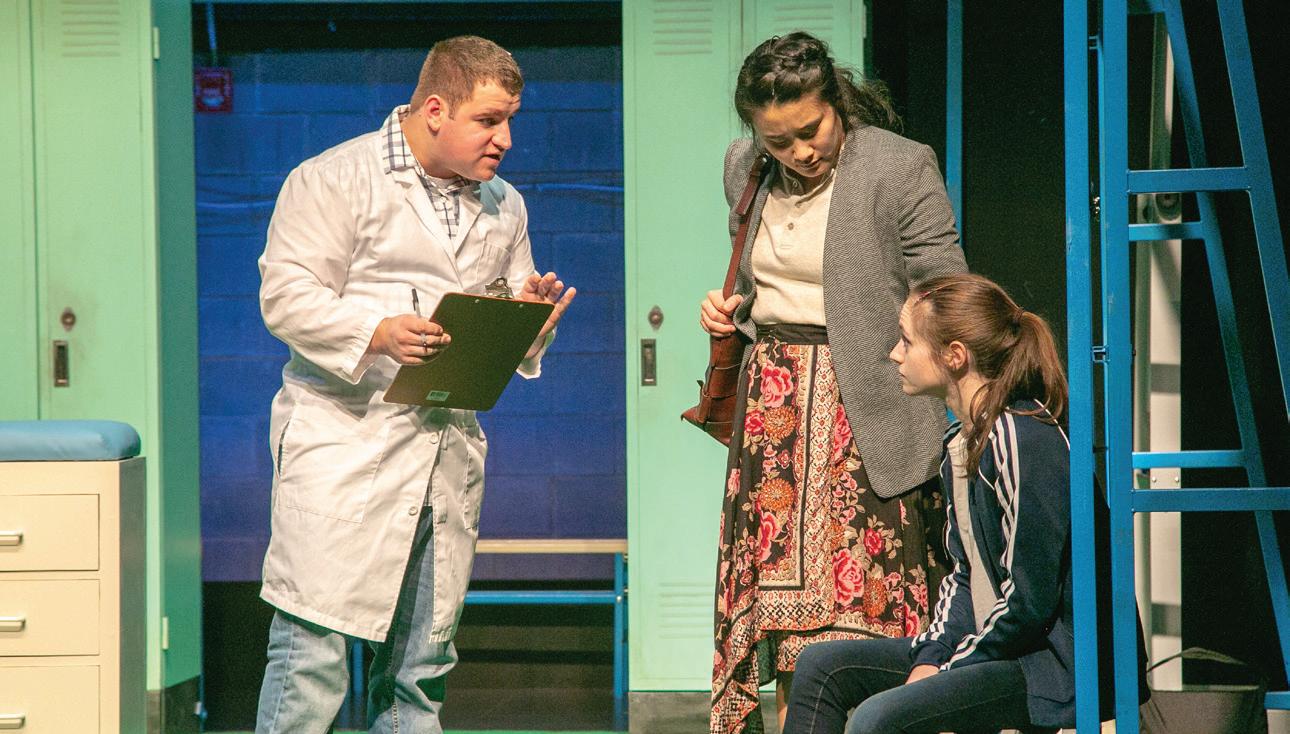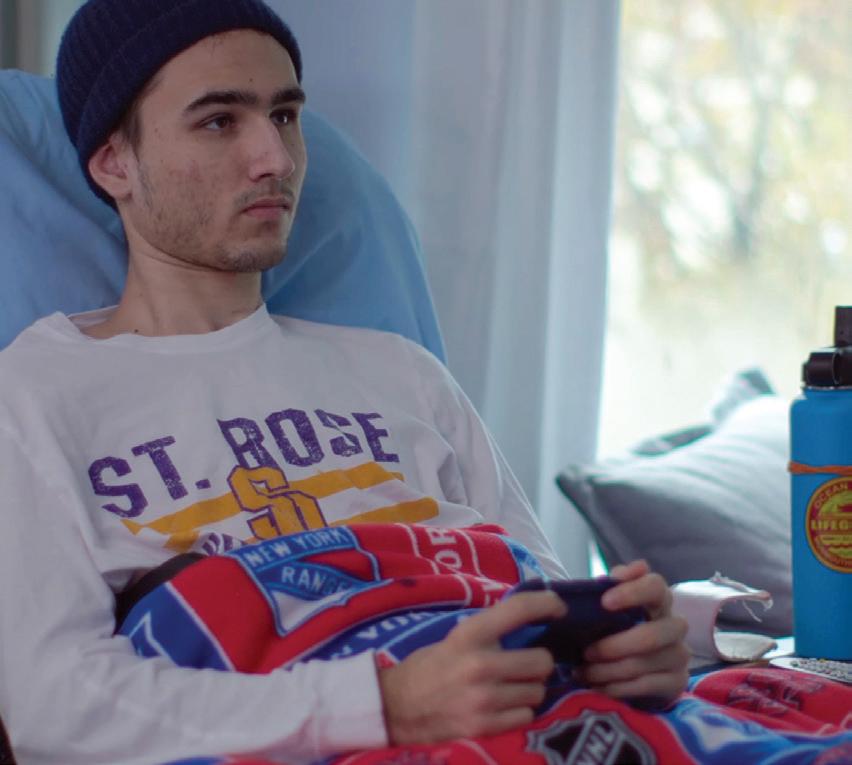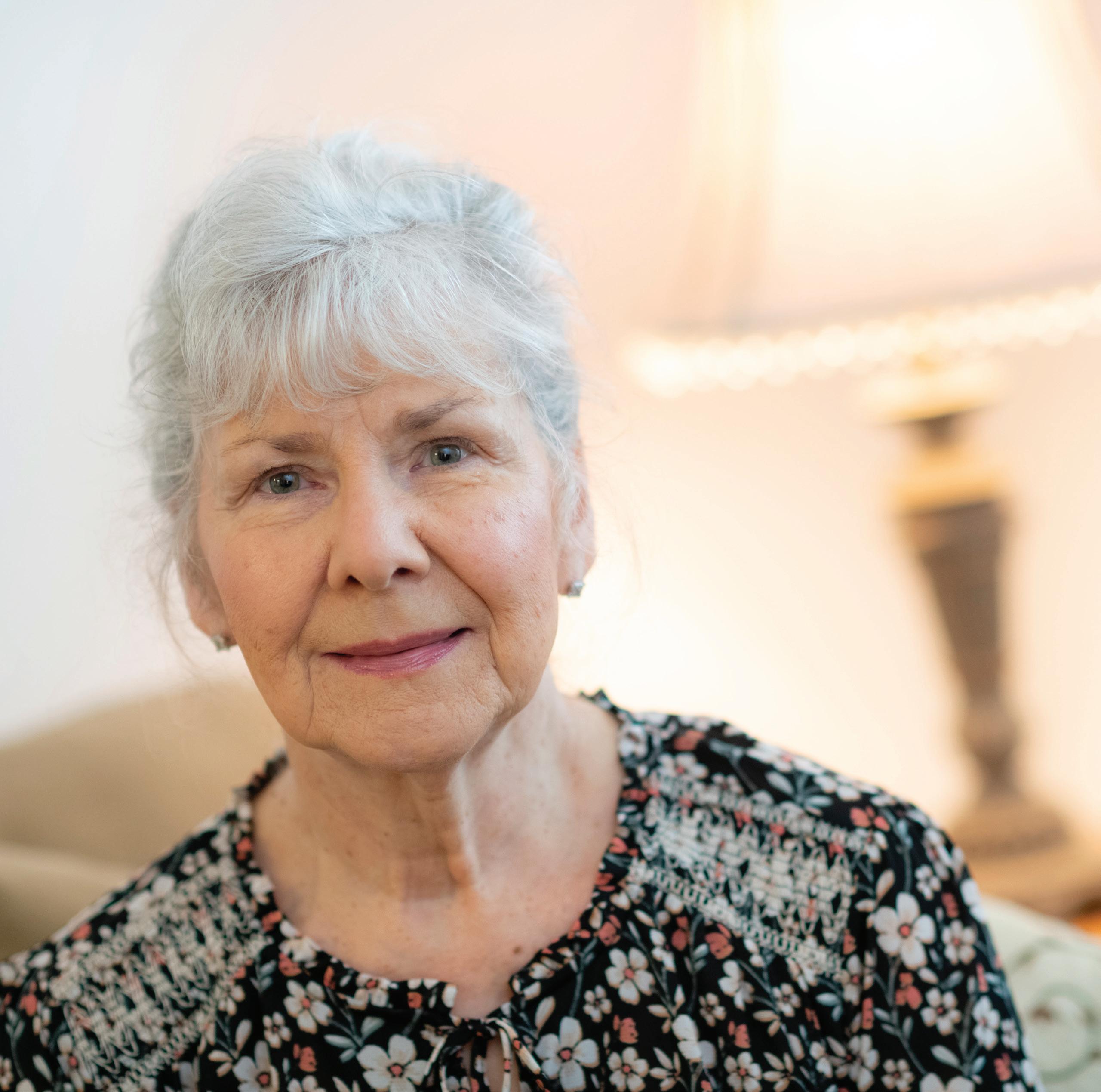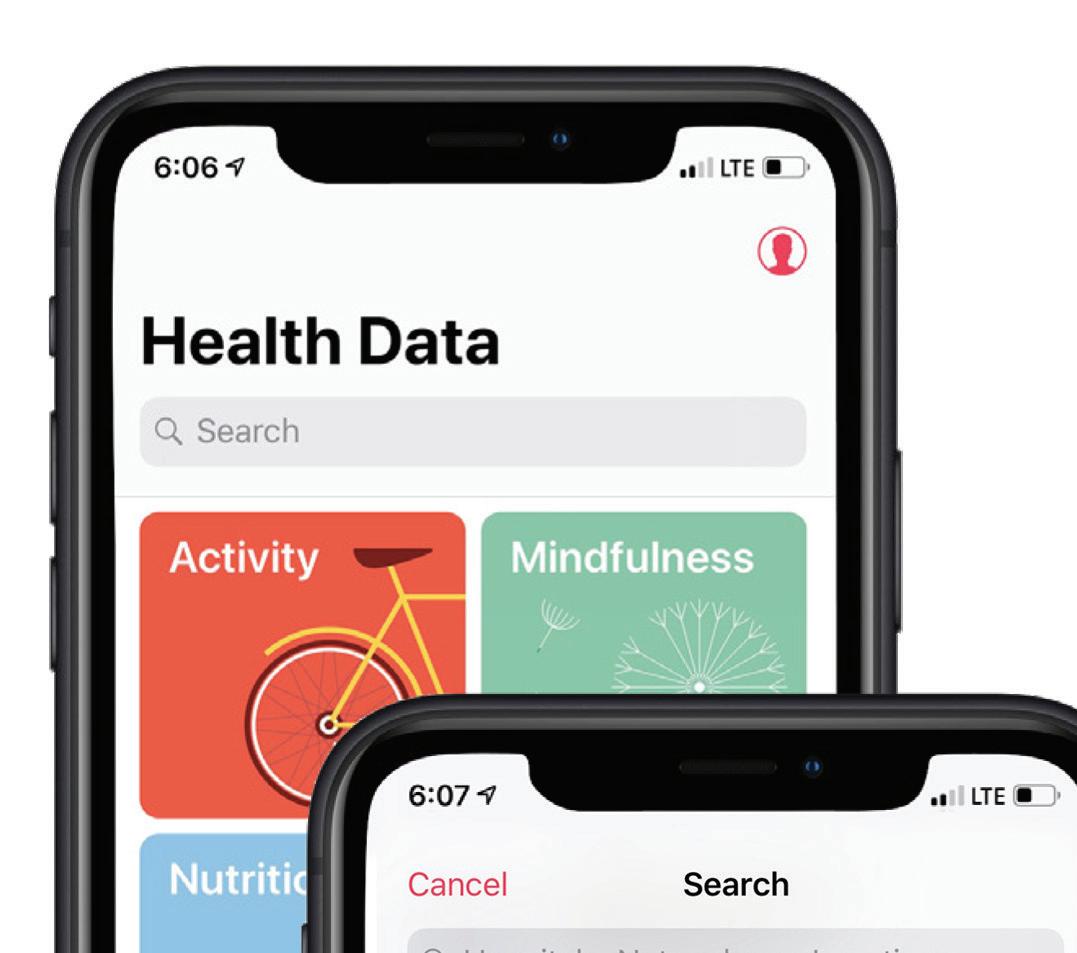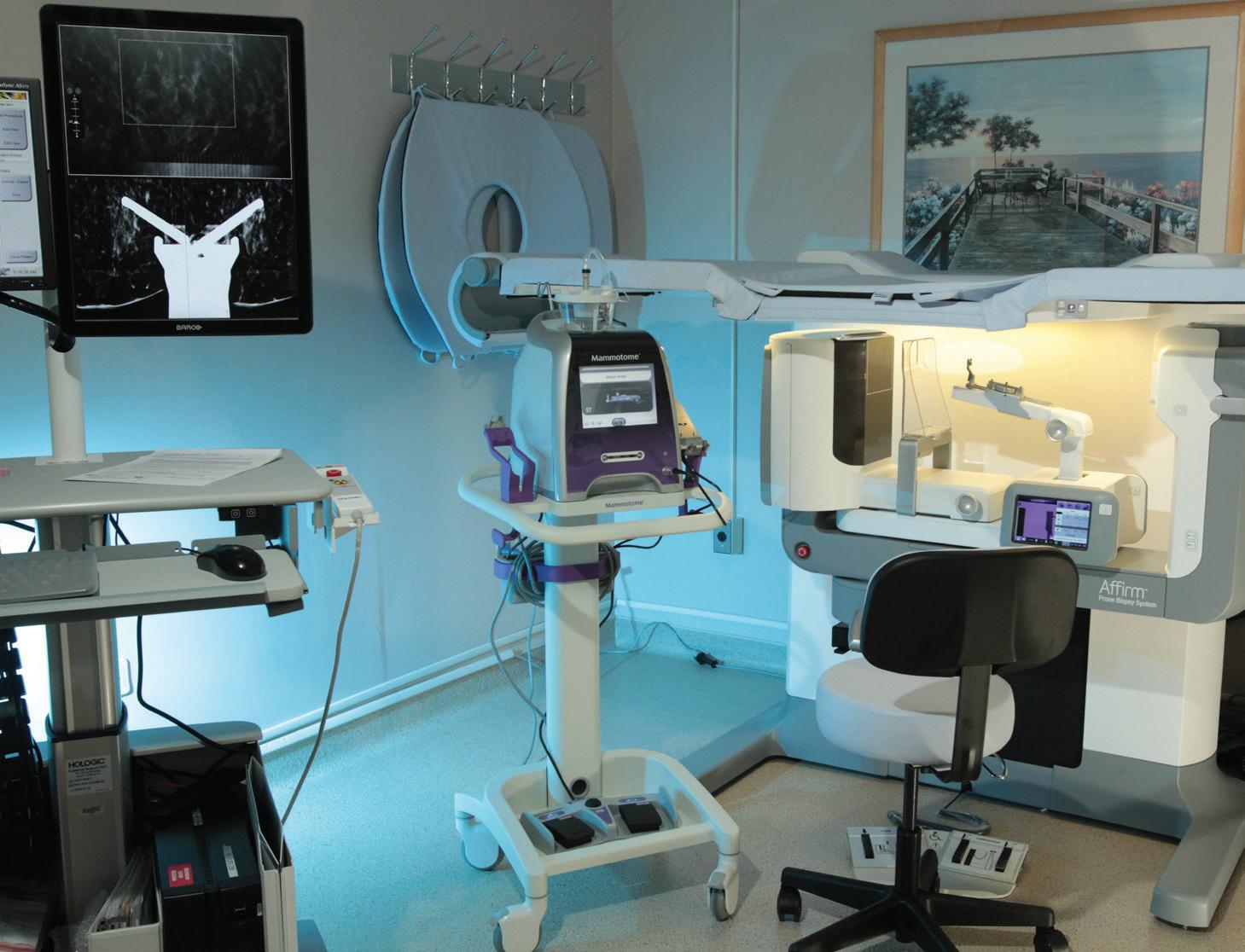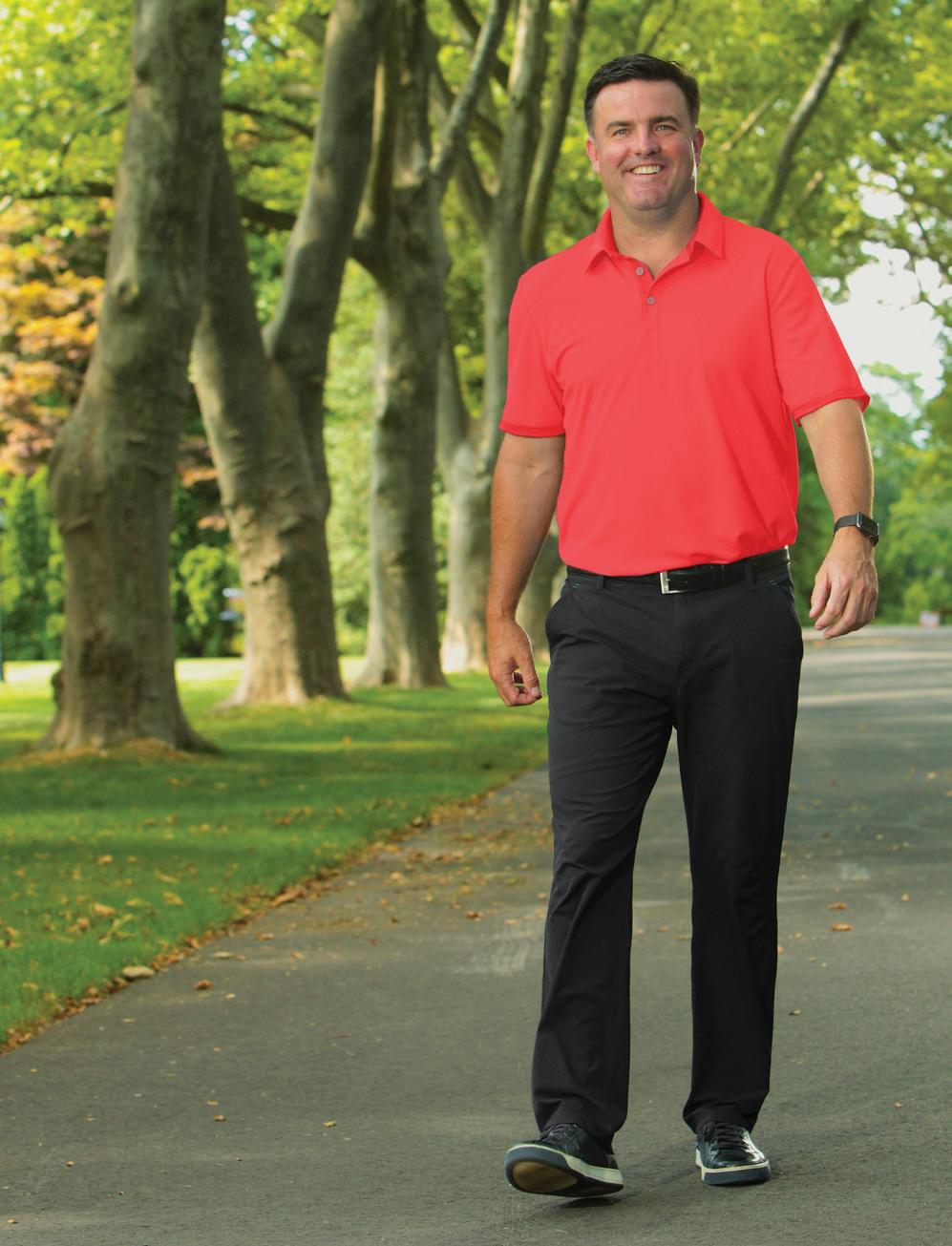
5 minute read
GET SCREENED! It’s safe to
GET SCREENED!

BOOST YOUR CHANCES OF LIVING A LONG, HEALTHY LIFE BY HAVING THESE TESTS.
We’ve all heard the expression “An ounce of prevention is worth a pound of cure.” When it comes to your health, this couldn’t be more accurate. Although many people have put off screenings due to COVID-19, it’s time to resume them. At Monmouth Medical Center Southern Campus (MMCSC), healthcare providers are taking the appropriate precautions to provide safe and high-quality care. Here, the screenings you should schedule now:
1MAMMOGRAM
WHAT IT IS: A mammogram is an X-ray of the breast. MMCSC offers threedimensional mammograms, which produce many thinly sliced images of the breast, improving cancer detection. If a woman having this type of screening needs a biopsy, she can have one guided by threedimensional mammography imaging. WHY YOU NEED IT: A mammogram allows for early detection of breast cancer. The test reduces the risk of dying from the disease by about 20 percent, according to the American Cancer Society. WHEN TO GET IT: Women who are at average risk of developing breast cancer should have a mammogram annually starting at age 40. A woman at high risk may need to be screened earlier—and she may benefit from an ultrasound or an MRI. To schedule a mammogram, call 732.923.7700.
2COLONOSCOPY
WHAT IT IS: A flexible, lighted tube is used to examine the entire colon and rectum. During the exam, which is performed while a patient is sedated, the physician can remove any abnormal growths, or polyps. The test requires a laxative preparation and is about 95 percent accurate. WHY YOU NEED IT: Colorectal cancer is the third leading cause of cancer death in the U.S. for both men and women, according to the Centers for Disease Control and Prevention. Colonoscopy reduces the risk of death from colorectal cancer by about 60 percent, according to a study published in the Annals of Internal Medicine.
TOASTED COUSCOUS SALAD
INGREDIENTS
COUSCOUS
• ¾ cup whole wheat couscous • 2 tablespoons olive oil • ¼ teaspoon sea salt • several twists of freshly ground black pepper • Balsamic vinaigrette • ¼ cup olive oil • 2 tablespoons lemon juice • 2 tablespoons balsamic vinegar • generous amount freshly ground black pepper • teaspoon salt
SALAD
• 4 large handfuls Bibb lettuce • ½ pound cherries (about two large handfuls), pitted, halved and quartered • 2 radishes, sliced • 2 gold cherry tomatoes, cut in half • 2 tablespoons basil pesto

DIRECTIONS COUSCOUS: Bring ¾ cup water to boil in a small saucepan. Remove the pan from heat and pour in the couscous, olive oil, sea salt and a few twists of freshly ground black pepper. Stir, cover and let sit for 5 minutes. Remove the lid, fluff the couscous with a fork and set it aside. DRESSING: Whisk together the vinaigrette ingredients in a small bowl until emulsified. In a skillet over medium-low heat, toss the couscous with half of the balsamic dressing, about 3 minutes. SALAD: In a large serving bowl, combine the Bibb lettuce, sliced cherries and tomato. Add toasted couscous. Drizzle with enough vinaigrette to lightly coat the greens (you might need only half the dressing) and toss to combine. Place pesto on the side for dipping. Serve immediately.
WHEN TO GET IT: People at average risk (meaning no family or personal history of colorectal cancer) should have the test once every 10 years starting at age 50. You may be eligible for a free screening. To learn more or schedule a colonoscopy, call 844.226.2376.
3LUNG CANCER SCREENING
WHAT IT IS: A low-dose computed tomography (CT) scan of the chest helps to detect lung cancer, which is diagnosed in more than 228,000 people in the U.S. each year, according to the American Cancer Society. WHY YOU NEED IT: When lung cancer is diagnosed and treated at an early stage, the survival rate is more than 70 percent. There’s a 20 percent reduction in the chance of death from lung cancer in people who receive the screening test. WHEN TO GET IT: Smokers or former smokers ages 55 to 77 with a smoking history of at least 30 “pack-years” (packs per day multiplied by the number of years a person has smoked) should have the test annually. To qualify for screening, you can’t have any symptoms of lung cancer and may not have had a chest CT scan in the past year. To schedule a lung cancer screening, call 732.923.7966.
4VASCULAR SCREENING
WHAT IT IS: A test for vascular disease, a condition that affects blood vessels and is a leading cause of death. It’s painless, noninvasive and can be administered in less than 30 minutes. Ultrasound imaging is used to check for an aortic aneurysm (a bulge in the wall of the major blood vessel in the heart) and carotid artery disease (a blockage in the arteries that send blood to the brain and head). It also evaluates blood flow in the legs. WHY YOU NEED IT: Vascular disease can have no symptoms. WHEN TO GET IT: Consider screening if you’re 65 or older or have a history of smoking, high cholesterol, high blood pressure, diabetes or a family or personal history of heart disease. Risk factors for vascular disease include being obese, sedentary or having previous heart or leg treatments. To schedule a vascular screening, call 732.886.4363.
5CORONARY CALCIUM SCORING TEST
WHAT IT IS: A CT scan can estimate your risk of developing heart disease. It measures the amount of calcified plaque— which is composed of fats, cholesterol, calcium and other substances—in blood vessels that supply the heart. WHY YOU NEED IT: It can help your physician determine whether you could benefit from a cholesterol-lowering medication. WHEN TO GET IT: Candidates for the test include men who are over 45, women who are over 55 or are postmenopausal and people who are overweight or have a family history of heart disease, high blood pressure, high cholesterol, diabetes, a history of smoking and a sedentary lifestyle. To schedule a coronary calcium scoring test, call 732.886.4363.
VASCULAR SCREENING Wednesday, September 2 Appointments available from 8 a.m. to 3 p.m. Fee: $49
See “Vascular Screening” (left) for a description of the test. Results are reviewed by board-certified radiologists and are forwarded to your primary-care physician. Call 732.886.4363 for an appointment.

